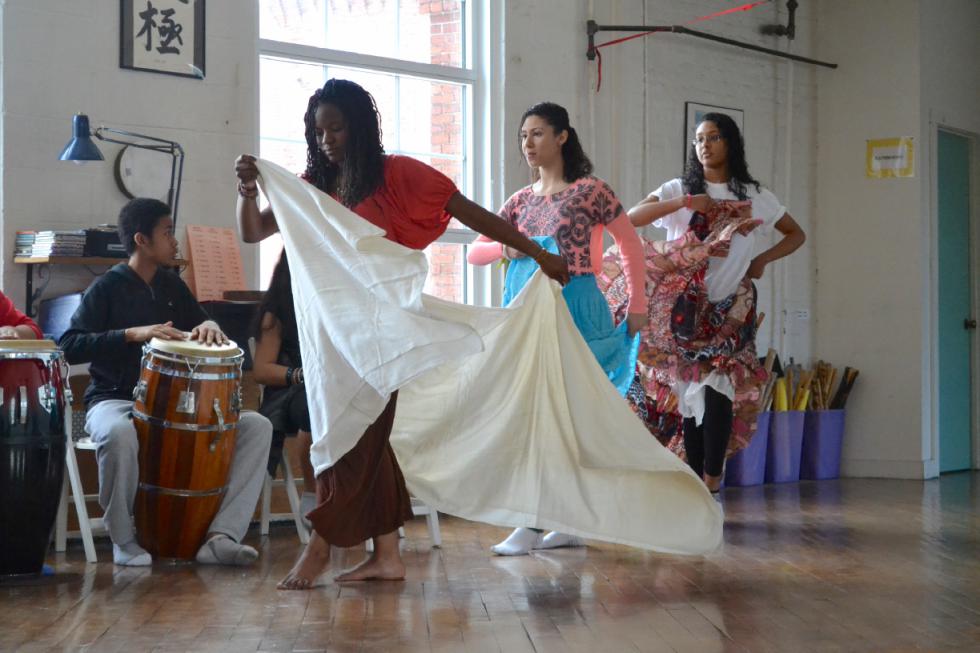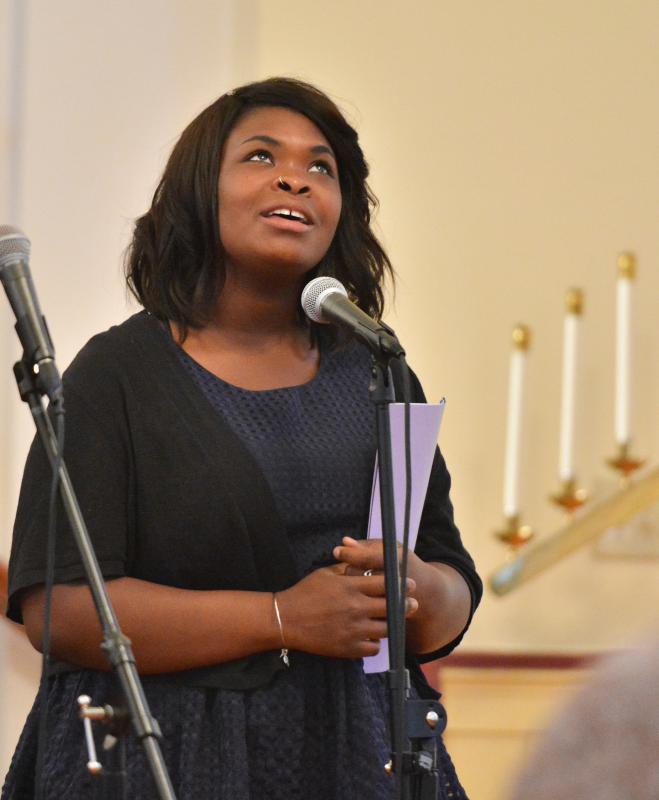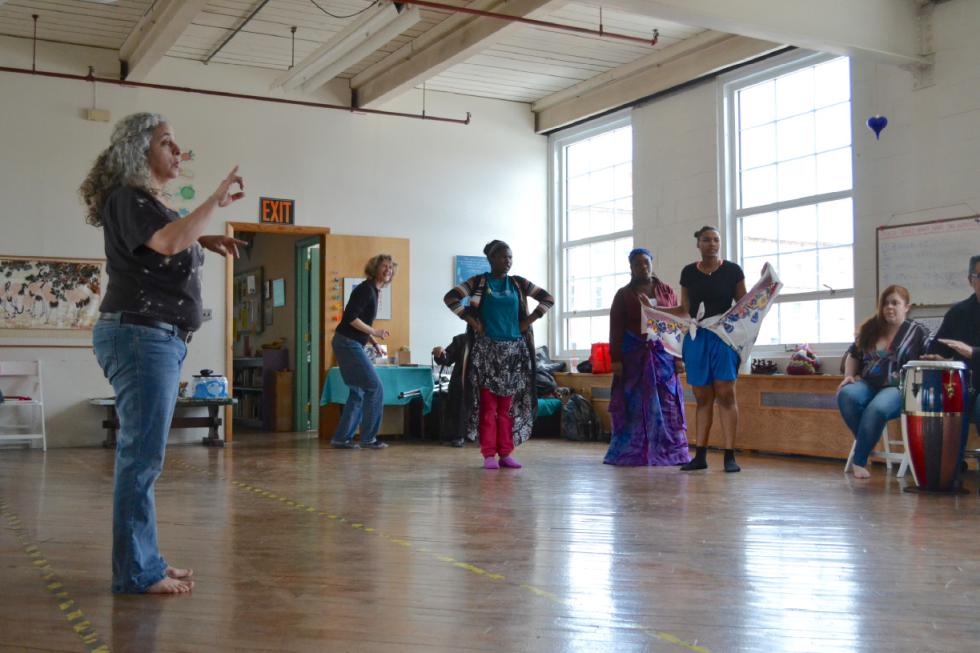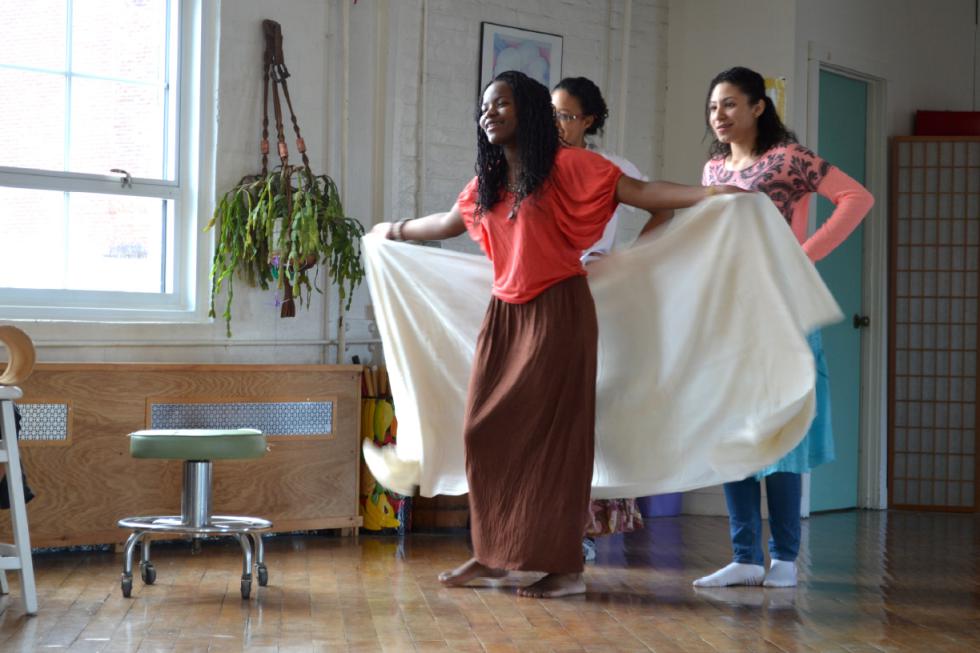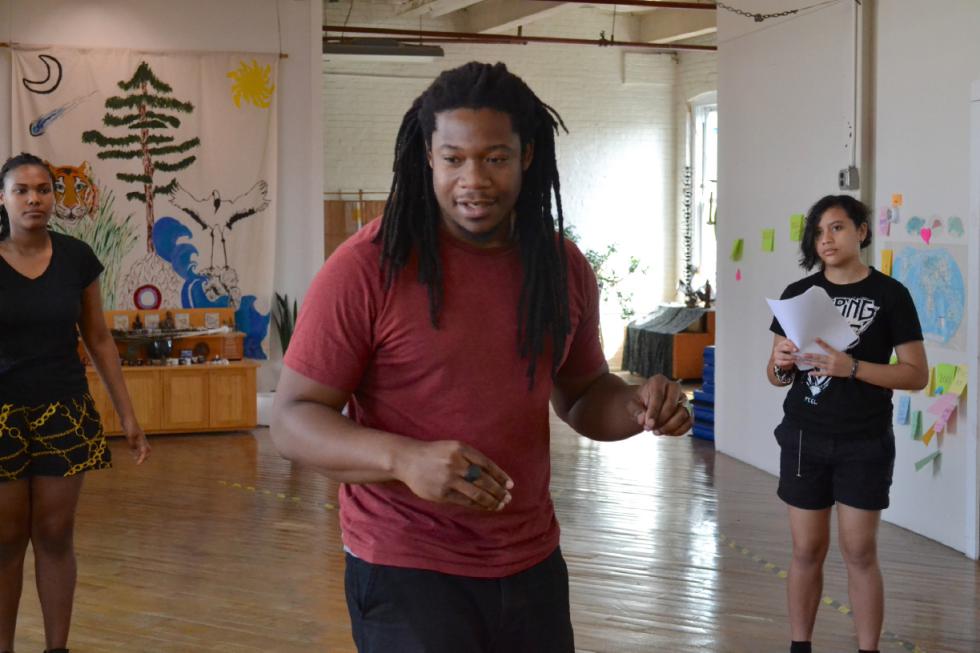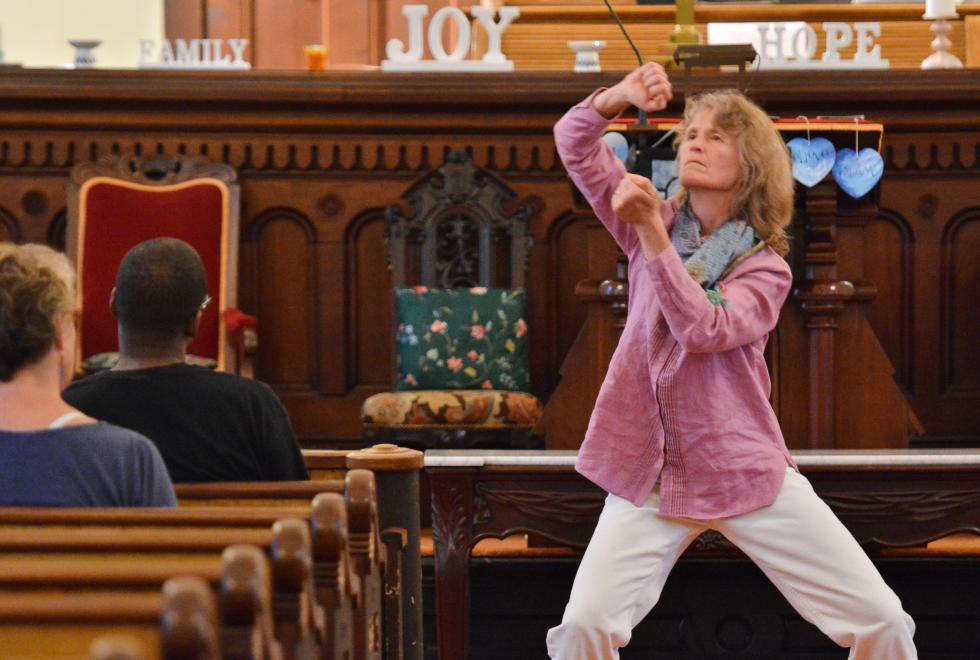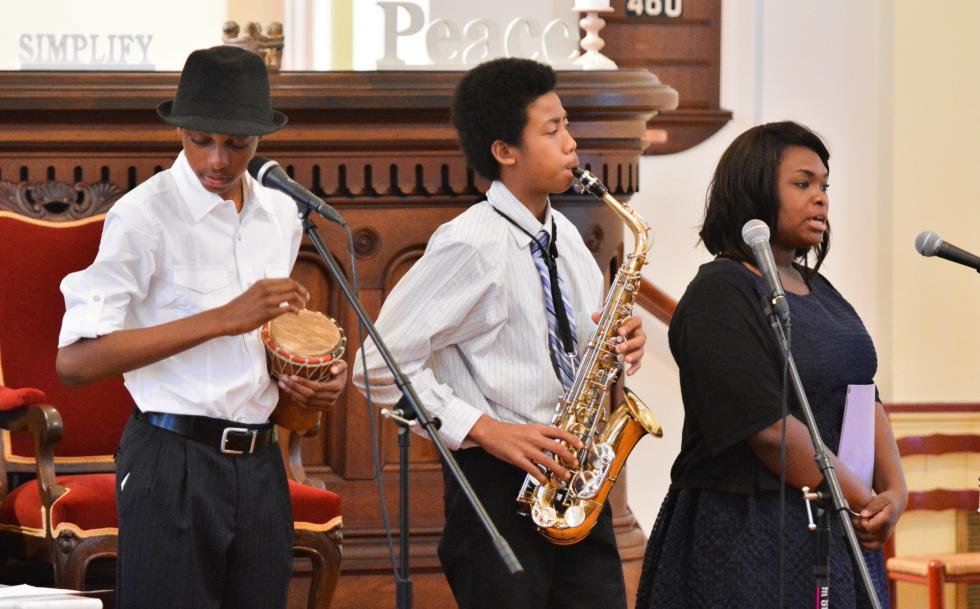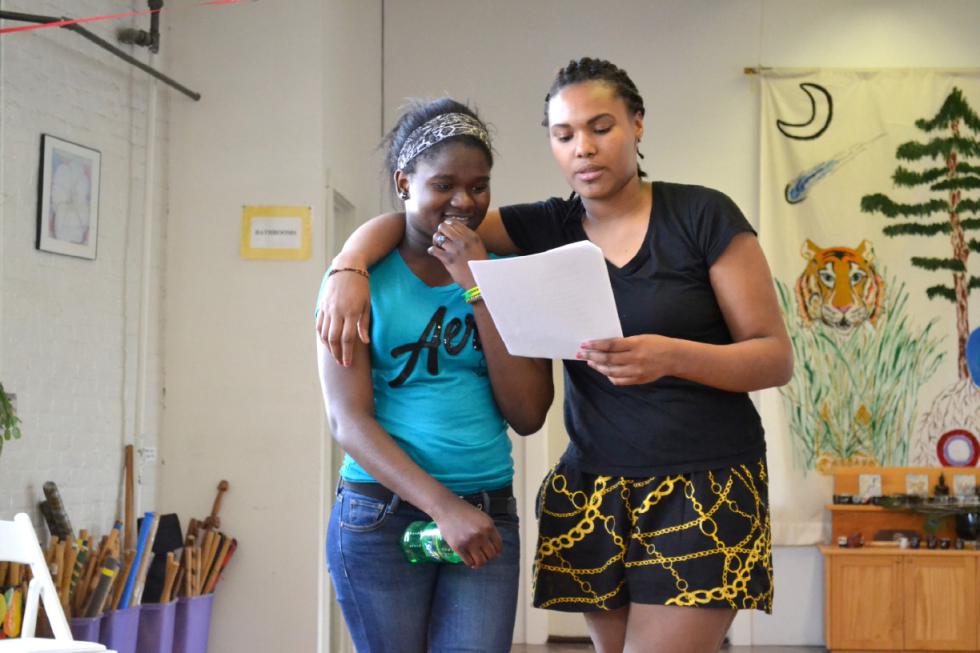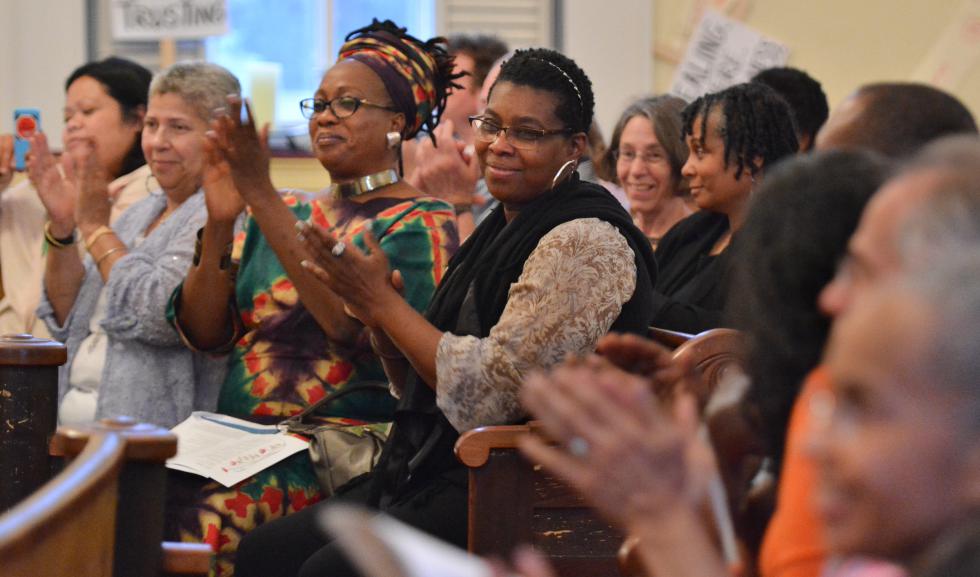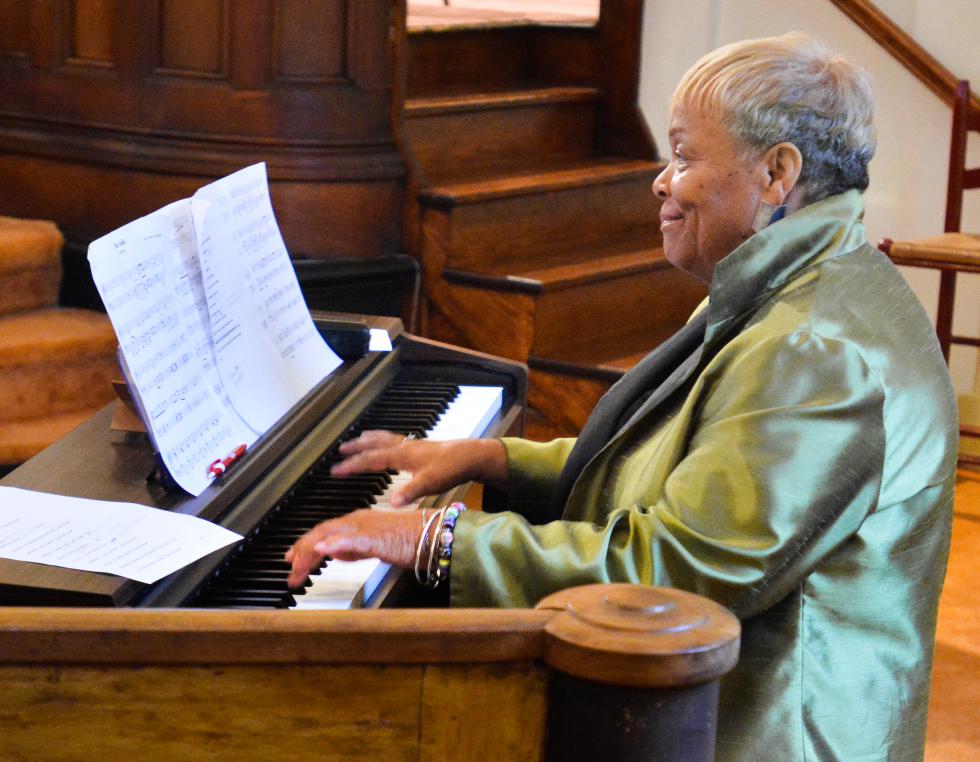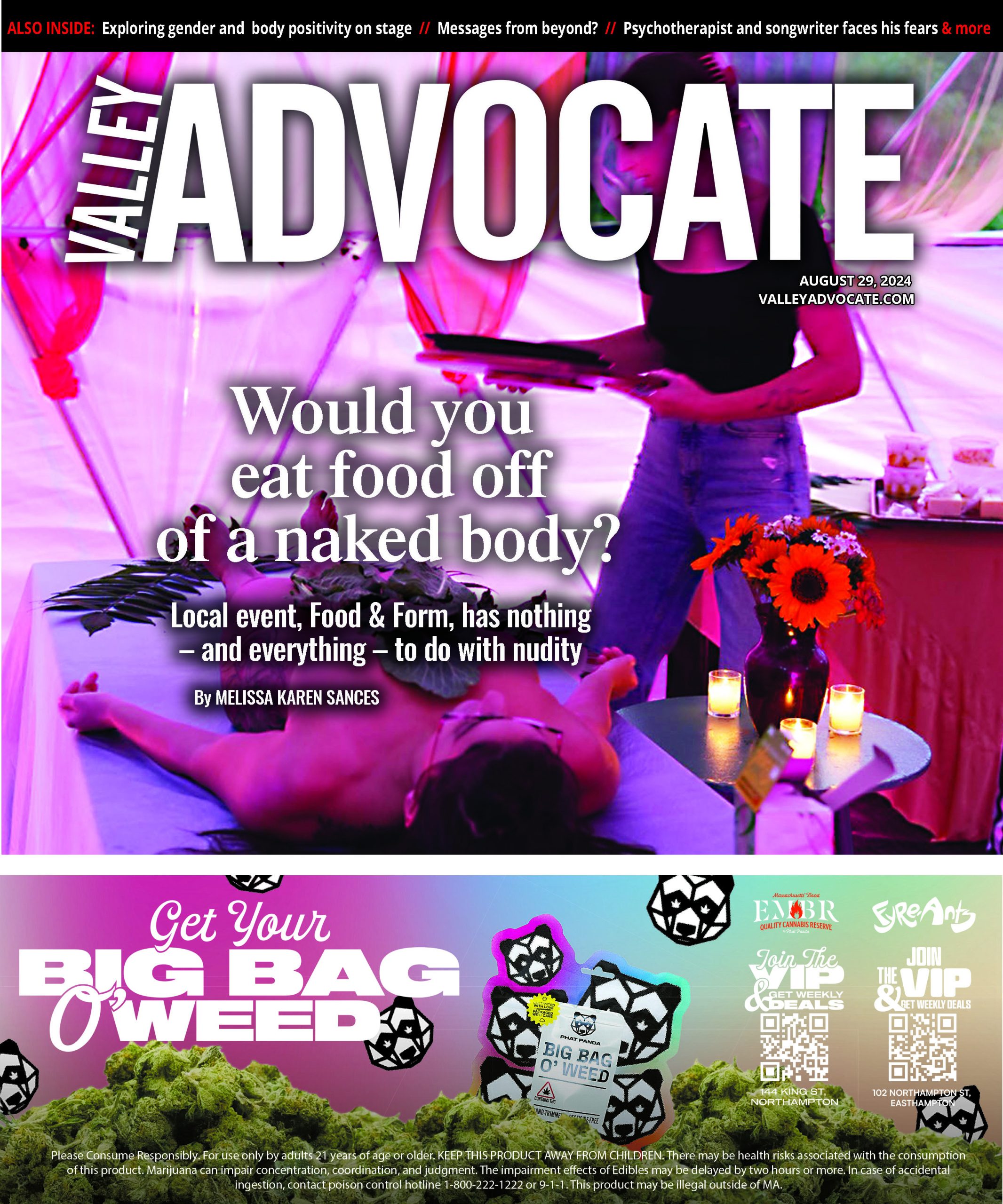Bernice Kwade lives in two worlds at the same time. “When I’m at home, it’s a totally different environment than when I go out,” she said. “My parents are trying to instill traditional African values in me, but we live in America now. I want to have a more liberal view on life.”
Bernice, 16, and her twin sister Benedicta left their mother in Ghana and flew to live with their father six years ago on a pair of one-way airplane tickets. The twins now live in Chicopee.
At home and through her African community at church, Bernice explained, she is instructed on how to be a woman. She is learning to cook, clean, and prepare for a life with a husband. “That’s great, and I want to learn those skills,” she said, “but then I go to school and take my feminism class. Sometimes it’s hard to combine those views.”
Bernice goes to the Paulo Freire Social Justice Charter School in Holyoke, among a predominantly Puerto Rican student body. Benedicta attends the nearby — but much whiter — Chicopee Comprehensive High School. They each face personal obstacles, and opportunities, to connect with their cultural heritage. Over the past year they have been channeling those complicated feelings into a new performance piece called Entrelazando Raíces.
The show is currently being written and rehearsed by a collective of young people of color between ages 14 and 21. They live in Springfield, Chicopee, Holyoke, and Amherst, and most attend either the Paulo Freire school or the Pioneer Valley Performing Arts school in South Hadley. They’re part of a program called the Youth Ambassadors, brought together last spring by an Amherst nonprofit called Crossing The Waters Institute for Cultural Exchange.
Entrelazando Raíces, which translates from Spanish as “Intertwining Roots,” is an evolving hour-long show combining sequences of dance with live music, spoken word poetry, and a series of short monologues written by these high-schoolers that explore being black and Hispanic in the Pioneer Valley. The performance examines the divides between Africans, African-Americans, and Puerto Ricans, but also their connections and shared histories, many of which are rooted in the transatlantic slave trade and its impact on the populations of the Americas and the Caribbean.
On the evening of June 18, several members of the group performed a fundraiser showcase at the Haydenville Congregational Church. That performance highlighted some of what the group has created so far, including music, poetry, and excerpts from the script. The show will be in development for several more months — the Youth Ambassadors will return to this project after a break over the summer.
But based on a few recent rehearsals we visited, it has already taken on a momentum of its own.
The drumming starts, and the spectators go silent. Four young women stand against the mirrored wall in a bright sunlit studio. They wear long flowing skirts over their street clothes, and they clutch the fabric at their hips. The percussion kicks in, and they begin to dance, stepping through the room in a slow, stately line, drifting handfuls of skirt from side to side.
The gesture is instantly recognizable from flamenco, and from West African dance. In reality, this is a blend of the two: Puerto Rican Bomba dancing, which the group has been learning under the instruction of Brenda Cepeda.
Upstage, two teenage musicians play conga and tumbadora drums, while a third plays a pair of wooden sticks called the cuás. They keep time as Catia Correia, an 18-year-old performer from Amherst, steps forward. As she dances, she sings:
“Campo yo vivo triste/ Cada día sufriendo más/ Ay Dios que será de mí/ Si no bailo esta bomba me voy a morir.”
In other words: If I couldn’t dance Bomba, I would die.
Correia finishes her singing, and the dance ends. The audience applauds. It is May 9. The people gathered in this Easthampton studio are friends and members of Valley Women’s Martial Arts, the group that has hosted rehearsals here throughout the spring.
To hear Ingrid Askew tell it, this show has the potential to tour the Northeast and, eventually, the world. Askew founded the Crossing the Waters program in 2009. Her dream is to form an international network that allows artists and community groups to learn from and enrich each other.
“My work has always been about social justice, anti-racism, and peace-building,” said Askew, who lives in Amherst. “I’ve worked with activists, ex-combatants, political prisoners, artists, musicians, dancers, poets. In South Africa, that was my community. I’m looking for ways to connect back to that.”
In the spring of 1999, Askew walked across Africa on a 13-month pilgrimage to South Africa retracing portions of the transatlantic slave trade on foot. Her journey eventually landed her in Cape Town. Askew, who was born and raised in the U.S., decided to stay in the city and reconnect with her African roots. She remained there for 10 years.
Askew envisions taking the Youth Ambassadors to places like South Africa, Cuba, and Haiti. But first things first. When this group first came together last spring, it wasn’t clear what kind of story the ensemble would want to tell.
In order to figure that out, Askew hired Caridad Martinez, a Cuban-American artist and teacher whose political activism in Holyoke caught her eye. In conversation last May, they figured out the themes of the show.
In the months since then, Martinez has directed group rehearsals about once a week. Some students stopped by rehearsal once or twice, then dropped out in favor of other commitments. But word of mouth spread, and friends of friends started to show up. Some were even willing to sing, dance, act, and play music.
Social justice theater is the only kind of theater Martinez wants to do. “It’s great to learn about the music and the dance,” she said, “but I’m very focused on developing relationships among the cast. I really want them to connect and talk about these themes, so that they can work at resolving conflict later in life.”
It is only through colonization that people of color learned to divide themselves, she added. “So part of this show is talking about that, and using the arts to break down barriers. But the thing that unites us is our African heritage.”
That’s a weighty message for one show to carry. Martinez shrugs. “I try to take it one day at a time.”
On a break, the teenagers sat in the hallway for a few minutes, relaxing and chatting.
Viseth Loeung-Coleman, 14, lives in Amherst and just finished eighth grade at PVPA. He got involved with Entrelazando Raíces through his parents, who know Ingrid Askew. He is the lead drummer in the show, and although he said he is excited about the project, he is finding the drumming harder than expected.
“It’s unpredictable,” he said, referring to the fact that in Bomba, percussionists follow the rhythm of the dancer’s body, rather than the other way round. “It’s hard to predict someone else’s movements. At least for me. I can’t do it yet.”
Being here, he said, has helped to open his eyes to racial dynamics. “Being black, you have a different awareness of your surroundings. I think it’s a subconscious fear of white supremacy,” he said. “I’ve felt it at times, but I hadn’t talked about it very much before joining the program.”
Viseth also plays the saxophone. “Because it’s shaped like a ‘J,’ and the ‘J’ stands for justice.” He is hoping that music continues to play a big role in shaping the show when rehearsals start up again in the fall.
Every performer has done some writing for this show, mainly in the form of personal essays.
Bernice said she was reluctant at first to write about her move from Ghana to America. “People are always saying, What’s the deeper meaning of that? But I’m usually writing about something that’s very simple,” she said. “That’s why I like writing monologues. If I’m writing about my history, I just do it. I don’t try to make it poetic. The words are the words.”
Bernice first heard about the Youth Ambassadors when Askew paid a visit to the Paulo Freire school and spoke about her experiences in Africa.
“I thought, oh my God, this group sounds awesome,” Bernice said. “I want to travel the world, and theater is already a passion of mine.”
Neither she nor Benedicta had much experience with music or dance. Even so, the twins started showing up to rehearse the show. Now, Bernice said, “I wrap my schedule around it.”
Bernice and Benedicta lived in the Bronx for three years before moving to the Valley, and Bernice doesn’t remember making a single white friend until moving to Holyoke. But it’s also hard for people of color to connect with each other, she said.
“We’ve been separated over time, and we watch each other from different sidelines. But Latinos and Africans and African Americans are all connected through the slave trade. We cook in similar ways. We have shared histories. Getting more interested in social justice has opened my mind to making new friends.”
Imani Stevens, 16, is going into eleventh grade at PVPA with a major in singing. Her grandmother, local singer and musician Ruth Bass Green, is friends with Askew and has been working as the group’s vocal coach.
Imani signed up because she had few friends from other schools, and she wanted to spend more time with people of color.
“Growing up in Pelham, I always got called an Oreo in elementary school,” she said, referring to the slang term for a black person who is perceived to have adopted white values and behaviors. “That’s why I’m trying to get in with kids from different cultures.”
What does she hope rehearsals will look like in the fall? “Like this, and even better,” she said. “I really hope the trip happens. I hope we get there.”
Some rehearsal days feel slow and exploratory; others seem rushed. But by the time May 9 has rolled around and the students are performing Bomba for this small Easthampton audience, the floating pieces of an hour-long show are starting to cohere.
After the audience departs, the cast sits down to read through the script for the first half of the show. They are joined by Aisha Jordan, the artistic director of the theater company 2050 Legacy, and company member Frantz Jerome. Jordan and Jerome both lived in the area when their group was called Project 2050, an extension of the New WORLD Theatre company based at UMass.
Project 2050 has been leading several of the writing workshops that produced this script. Today, Jordan and Jerome have driven up from New York to see how things are going.
Askew talks through the script. Then the actors read out loud, each one passing off to the next after a few lines:
“The world becomes hard … The ground we share more difficult … I am from broken shells … I am from city streets …” The volume drops after a few lines, and the reading starts to get mumbly.
Jerome pauses the read-though. “Listen, if you choose to be performers, there is not one moment in your life that you are going to be talking and it is not going to be for someone,” he says. “If you’re on stage, you’re talking to someone. And it needs to hit. Otherwise people will ignore, just like if you were trying to talk to someone outside on the street.”
He points to Viseth. “Say one, two, three.”
Viseth does, and Jerome turns to Bernice. “Say one, two, three.”
When she speaks it, Jerome steps back. “Same words, but they sound completely different, right?”
A few of the teenagers nod. Some look puzzled.
“We used to talk in unison in elementary school,” Jerome says. “When you feel yourselves doing that, break out of it. Speak with intention. Are you angry? Are you happy? Practice how to say it, and think about why you’re saying it.”
Someone in the circle makes an affirmative “Mmm” sound. This is one of those moments that crops up in rehearsal here once or twice a day, in which the air prickles with a sense of mission. It’s easy to see this as another day in rehearsal in Easthampton. But the group is one day closer to a finished show they can call their own.
“You are individuals,” says Jerome. “And if you don’t sound like it, then you lose your audience. They’ll think: oh, these are just kids. And that’s not how you want to be seen. You are performers. Speak up, and people will listen.”•
Contact Hunter Styles at hstyles@valleyadvocate.com.

